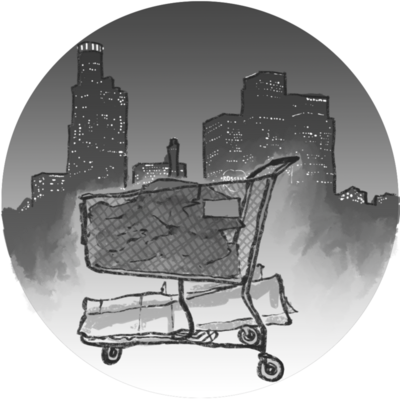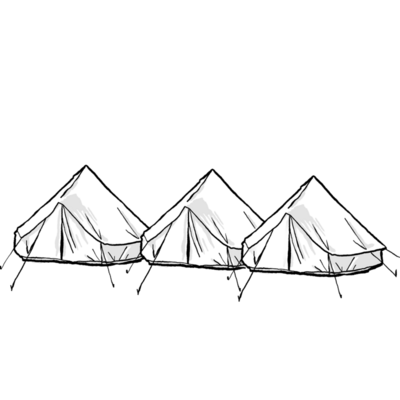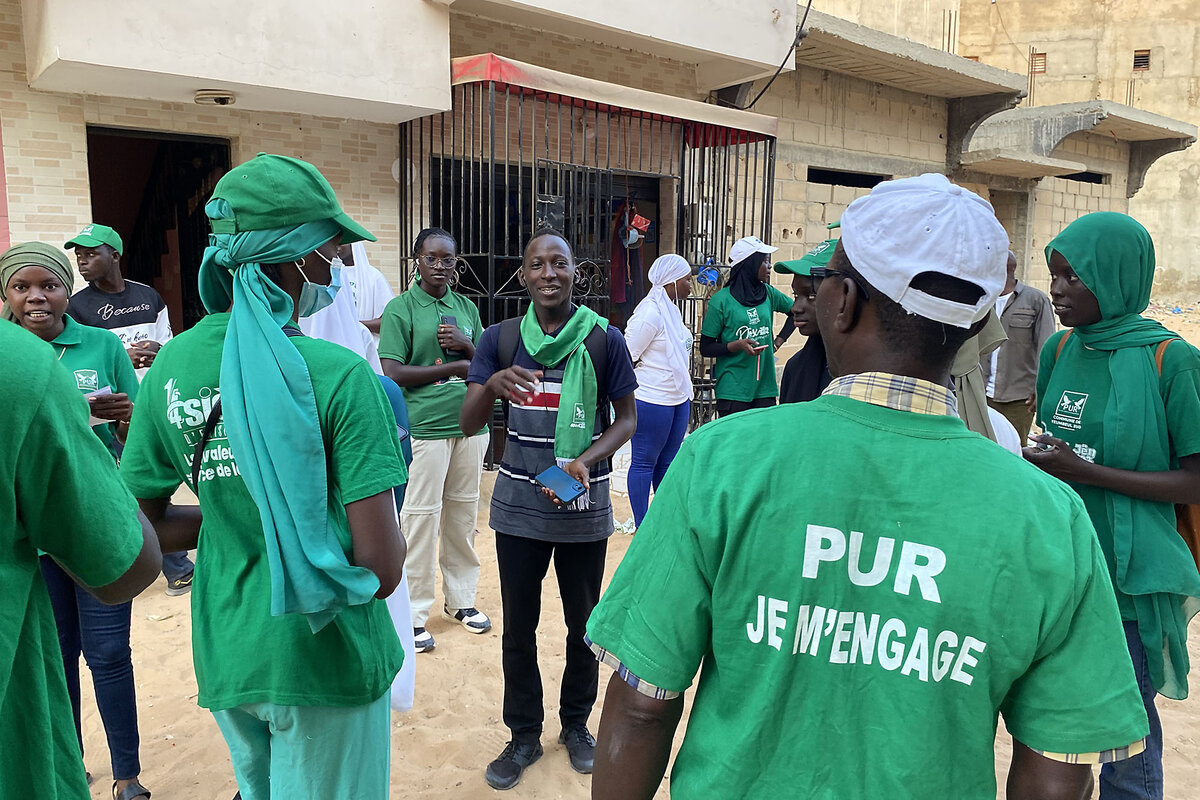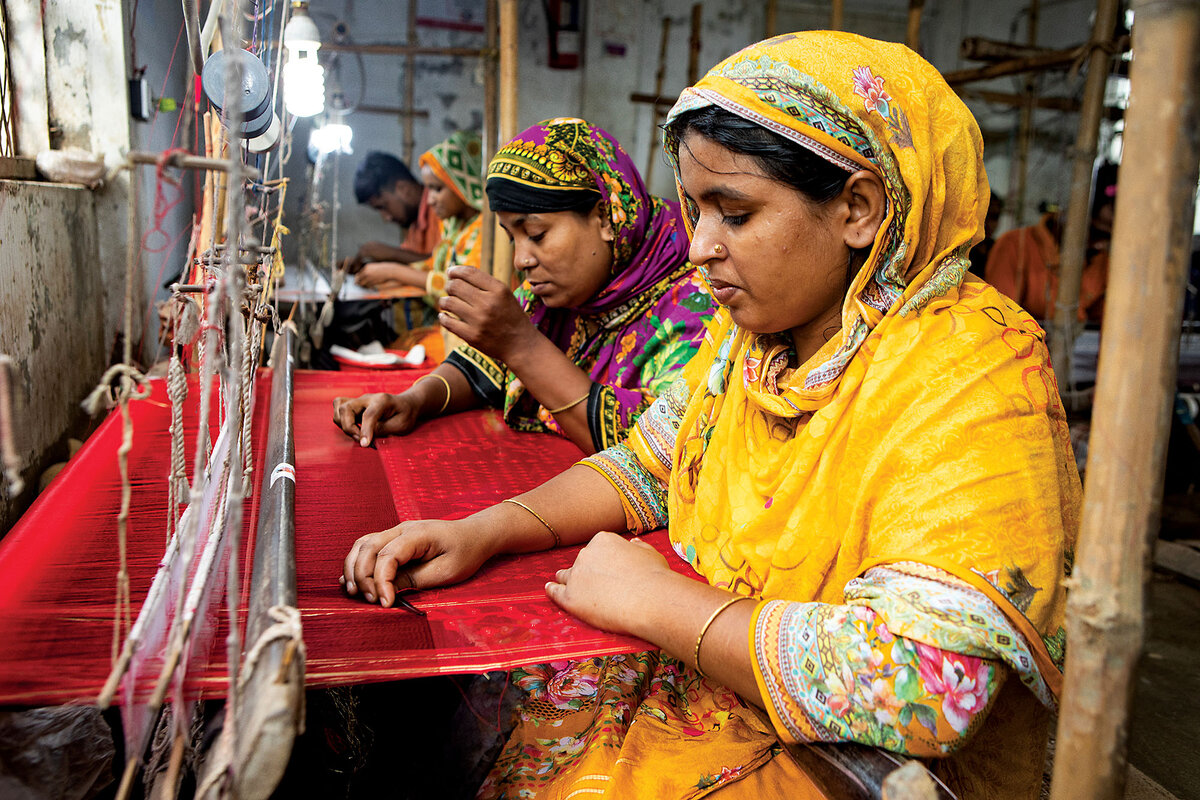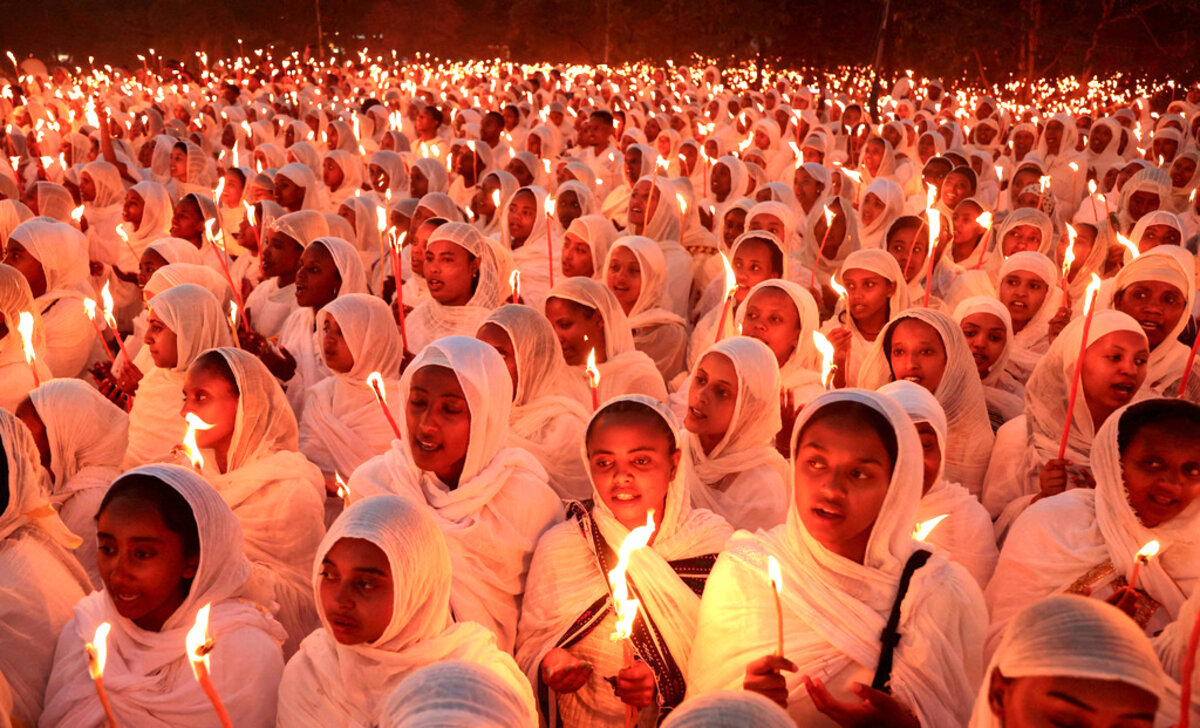As states face rising homelessness and mental illness, Californians are seeking solutions. They will soon vote on Proposition 1, which would help people get off the streets and into homes and places for treatment.

Why is Christian Science in our name?
Our name is about honesty. The Monitor is owned by The Christian Science Church, and we’ve always been transparent about that.
The Church publishes the Monitor because it sees good journalism as vital to progress in the world. Since 1908, we’ve aimed “to injure no man, but to bless all mankind,” as our founder, Mary Baker Eddy, put it.
Here, you’ll find award-winning journalism not driven by commercial influences – a news organization that takes seriously its mission to uplift the world by seeking solutions and finding reasons for credible hope.
Explore values journalism About usMonitor Daily Podcast
- Follow us:
- Apple Podcasts
- Spotify
- RSS Feed
- Download
 Mark Sappenfield
Mark Sappenfield
Paweł Płuska could be bitter or vengeful. The veteran journalist saw Poland’s previous, authoritarian government turn state media into a partisan mouthpiece.
Now that regime is gone, ousted by voters, and Mr. Płuska wants to help rebuild. How? “There is no hatred, no poison, no hate,” he tells Lenora Chu. “This is public television, so all groups, even those that do not recognize us, have their place here. We explain to people that patriotism does not mean that you are a member of one party.”
Poland helped lead Eastern Europe out of communism. Today, its lessons are for the world.
Already a subscriber? Log in
Help fund Monitor journalism for $11/ month
Monitor journalism changes lives because we open that too-small box that most people think they live in. We believe news can and should expand a sense of identity and possibility beyond narrow conventional expectations.
Our work isn't possible without your support.
Today’s stories
And why we wrote them
A deeper look
( 11 min. read )
Today’s news briefs
• Iran heads to polls: Iran holds its first parliamentary election since mass 2022 protests over mandatory hijab laws, apparently drawing a low turnout amid calls for a boycott.
• Alabama IVF legislation: Alabama’s Republican-led Legislature passes bills aimed at protecting the in vitro fertilization industry after the state Supreme Court ruled that frozen embryos should be considered children.
• Texas wildfire largest in state history: The Smokehouse Creek fire grows to nearly 1,700 square miles across the Texas Panhandle. The fire has merged with another and is 3% contained.
• California blizzard closes Yosemite: The most powerful Pacific storm of the season is forecast to bring up to 10 feet of snow into the Sierra Nevada by the weekend.
( 6 min. read )
Forced by Israeli assaults to flee their homes, many Gaza residents fear a repeat of the 1948 Nakba – meaning “catastrophe” – that drove 700,000 Palestinians into refugee camps.
( 6 min. read )
How do you restore faith in a public broadcaster that had been a tool of government spin? That’s the challenge facing Polish journalists at TVP, the state TV channel, after eight years of polarized coverage.
( 5 min. read )
Senegal’s average age is 22. As young people there await their first presidential election, they must decide not only who to vote for – but also if they think voting can make any difference in their country.
( 5 min. read )
Focus is often put on preserving disappearing languages, but what of other traditions? For some, vitality rests with maintaining a culture’s visual representations, too.
The Monitor's View
( 2 min. read )
Societies emerging from conflict sometimes seek to rebuild on foundations of accountability and forgiveness. Many set up formal commissions to promote reconciliation through truth-telling and mercy. Such “transitional justice,” however, often depends more on grassroots efforts than on governments.
That’s because – as seen in a new virtual museum dedicated to showing Afghan victims of war and human rights abuses – personal narratives are central to healing war-torn communities. They help seed empathy and trust among former enemies.
The Afghanistan Memory Home is a growing online archive of testimonies of endurance by ordinary Afghans during years of conflict and repressive rule under the Taliban. Its creators “approached this challenge with the utmost care, avoiding assumptions and ensuring a respectful understanding,” Phurbu Dolma, a collaborating archivist, told the group Human Rights Information and Documentation Systems.
The virtual museum is an example of the kind of community-led initiatives that Somali President Hassan Sheikh Mohamud has described as “healing spaces” – local sites of nation-building where the traumas and resentments of war are salved through traditional forms of civic engagement based on cultural values, spirituality, and listening.
These projects in reconciliation quietly persist almost everywhere people seek freedom from conflict or repression, from Afghanistan to Yemen. They often supplant the work of national transitional justice initiatives stalled by political disagreements or lack of cooperation.
They also underscore that “justice isn’t just punishment or prosecution and presenting evidence against perpetrators,” said Ruben Carranza, an expert on post-conflict community healing at the International Center for Transitional Justice, at the museum’s December launch.
In South Sudan, for instance, a local peace and reconciliation process called Wunlit gave grassroots strength to a 2018 national peace agreement. Led by tribal chiefs and spiritual leaders, the “peace to peace” dialogue defused cattle raids and abductions between the Nuer and Dinka communities. In Iraq, the Ministry of Human Rights has relied on tribal, religious, and civil society leaders to help forge local support for a national dialogue on reconciliation.
In Ethiopia, where transitional justice was the promised cornerstone of the 2022 peace accord ending a two-year civil war, traditional practices offer a buffer against persistent national political disagreements and ethnic division. Despite ongoing skirmishes between the Tigray and Amhara groups, some community leaders on each side are drawing on more than a dozen different traditional reconciliation mechanisms between them to dissolve tensions.
Those grassroots concepts of peace and justice transcend the local communities that share them, wrote Tadesse Simie Metekia, an Addis Ababa-based researcher at the Institute for Security Studies in South Africa. They provide models for national reconciliation built on showing compassion for victims, speaking truths, and forgiving.
History has “taught us that relying solely on military force will not bring about lasting peace and stability,” Hodan Ali, a Somali presidential policy adviser, wrote in The New Humanitarian. As the new Afghan museum notes, the more durable work of peace involves empowering individuals and communities to tell their own stories – and listen to each other.
A Christian Science Perspective
Each weekday, the Monitor includes one clearly labeled religious article offering spiritual insight on contemporary issues, including the news. The publication – in its various forms – is produced for anyone who cares about the progress of the human endeavor around the world and seeks news reported with compassion, intelligence, and an essentially constructive lens. For many, that caring has religious roots. For many, it does not. The Monitor has always embraced both audiences. The Monitor is owned by a church – The First Church of Christ, Scientist, in Boston – whose founder was concerned with both the state of the world and the quality of available news.
( 4 min. read )
Nothing can keep us from God’s love and goodness.
Viewfinder
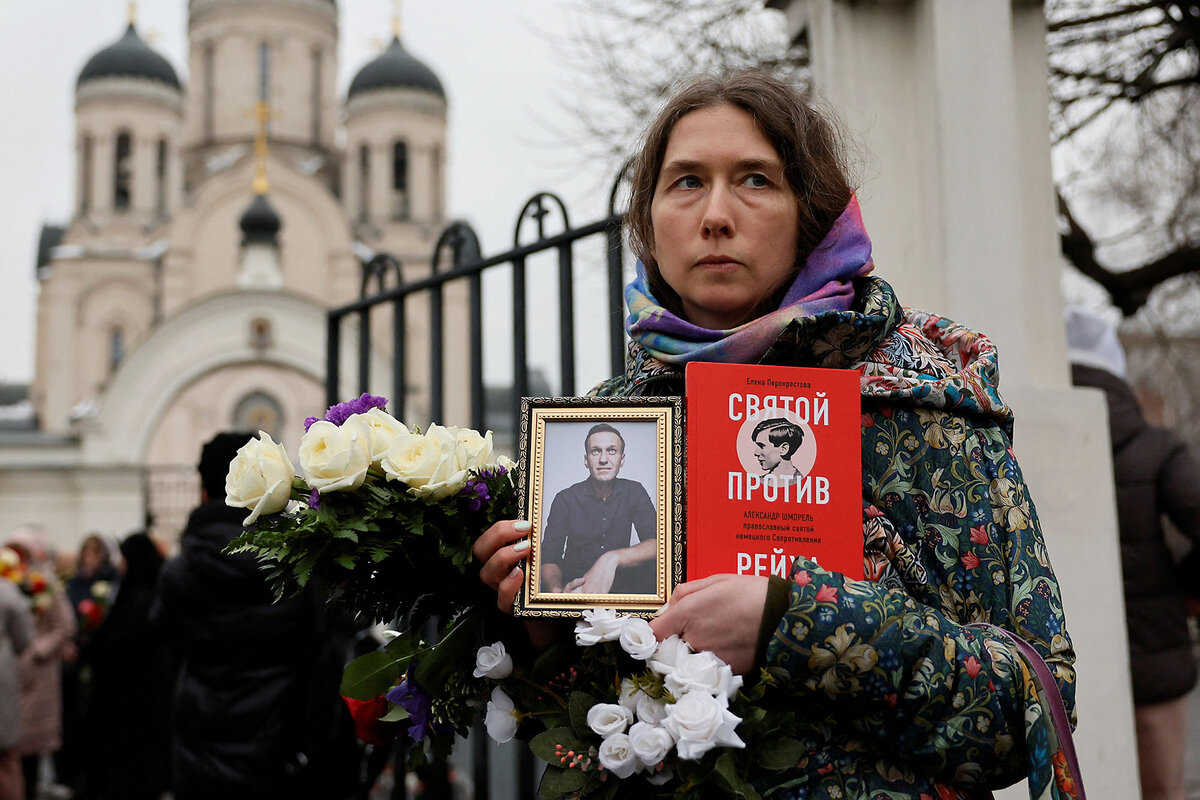
A look ahead
Thank you for joining us today. Please come back next week when we share our cover story from the Weekly magazine about Joe Biden and his status as the last bastion of the way Washington once was – a place of deal-making and of relationships that went beyond partisanship. Is there still a place in American politics for that approach?



